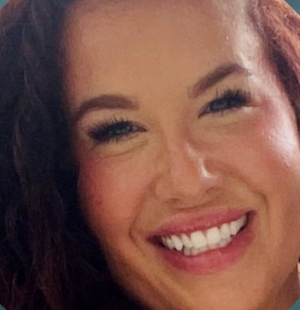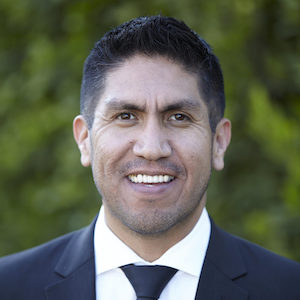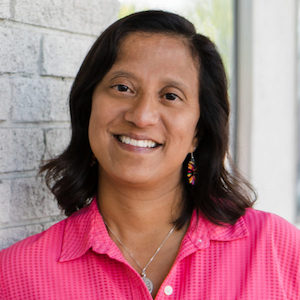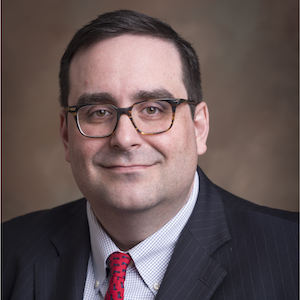Site Search
- resource provided by the Forum Network Knowledgebase.
Search Tip: Search with " " to find exact matches.

Retributing Power by Simplifying and Streamlining Processes
Sisters of St. Joseph Health & Wellness Foundation
 When Beth Collins joined the Sisters of St. Joseph Health and Wellness Foundation as the new Executive Director, she knew that the foundation could be doing more to support its nonprofit ecosystem. With a background in direct service, Beth remembered when she was on the other side of the funding relationship – sometimes spending hours writing lengthy application materials or digging up data to meet reporting requirements, all while juggling her never-ending to-do list. By aligning the values of Trust-Based Philanthropy to the virtues and mission of the Sisters of St. Joseph, she has catalyzed a shift toward redistributing power in its community partnerships.
When Beth Collins joined the Sisters of St. Joseph Health and Wellness Foundation as the new Executive Director, she knew that the foundation could be doing more to support its nonprofit ecosystem. With a background in direct service, Beth remembered when she was on the other side of the funding relationship – sometimes spending hours writing lengthy application materials or digging up data to meet reporting requirements, all while juggling her never-ending to-do list. By aligning the values of Trust-Based Philanthropy to the virtues and mission of the Sisters of St. Joseph, she has catalyzed a shift toward redistributing power in its community partnerships.
This power shift began when Beth started a conversation about values with the foundation board. By approaching the board with curiosity and bringing the voice of the community into the conversation, she set the tone for trust, openness, and an ongoing dialogue. The Foundation is now working toward fully embodying its values in its practices. The Sisters of St. Joseph have expanded their general operating support portfolio, shifted the bulk of the application process from applicants to the Foundation, replaced written reports with honest conversations, and created more opportunities for the public to provide feedback and engage in candid dialogue with the board. Focusing on only the essential information for applications and reporting has enabled staff to redirect their time and energy to develop wholehearted relationships with community partners. By starting with the why, Beth is leading the Foundation toward a clear vision for the how: “Trust Based Philanthropy is about humility – at Sisters of St. Joseph, we recognize that we are just one piece of the puzzle – and we are encouraging others to think outside of themselves.”
Offering Support Beyond the Check
Liberty Hill Foundation
 A community-funded foundation since day 1, Trust Based Philanthropy is at the core of the Liberty Hill Foundation. Centered on social justice campaigns, research, and policy initiatives designed to drive systemic change, Liberty Hill Foundation refers to itself as a "Laboratory for Social Change Philanthropy”. When Julio Marcial stepped into the role of Senior Vice President of Programs, he looked beyond the funding and considered the myriad of ways the foundation can support community partners beyond the check by connecting them to other funders and donors. As a member of several pooled funds in Los Angeles, Liberty Hill Foundation proactively seeks opportunities that will benefit their community partners. The Foundation has introduced many funders in their circle to Trust Based Philanthropy principles – this has sparked several conversations at other foundations serving Los Angeles county, several of which have since shifted their practices. Beyond private and public foundations, Marcial advocates for a push to Trust Based Philanthropy in California state funding agencies.
A community-funded foundation since day 1, Trust Based Philanthropy is at the core of the Liberty Hill Foundation. Centered on social justice campaigns, research, and policy initiatives designed to drive systemic change, Liberty Hill Foundation refers to itself as a "Laboratory for Social Change Philanthropy”. When Julio Marcial stepped into the role of Senior Vice President of Programs, he looked beyond the funding and considered the myriad of ways the foundation can support community partners beyond the check by connecting them to other funders and donors. As a member of several pooled funds in Los Angeles, Liberty Hill Foundation proactively seeks opportunities that will benefit their community partners. The Foundation has introduced many funders in their circle to Trust Based Philanthropy principles – this has sparked several conversations at other foundations serving Los Angeles county, several of which have since shifted their practices. Beyond private and public foundations, Marcial advocates for a push to Trust Based Philanthropy in California state funding agencies.
The Liberty Hill Foundation embraces itself as a fundraiser for its nonprofit partners and its responsibility for the Los Angeles community. The Foundation raises the funds and opens doors for nonprofits and then “steps out of the way,” says Julio. According to Julio, partnerships are the key to maximizing trust and impact in the community: “We can't do this without our partners, peers, and donors. We need to call each other out – and to call each other in.”
Leading with Trust, Transparency, and Responsiveness
Headwaters Foundation
 Headwaters Foundation is a health-conversion foundation working side by side with the community to achieve better outcomes towards a healthy and thriving Western Montana. Brenda Solorzano, CEO of Headwaters, has been at the helm of the foundation since its inception in 2017. With over 20 years of experience in traditional philanthropy, Brenda began asking big questions about standard philanthropic practices. Brenda is especially focused on tapping into the collective knowledge and experience of the community to create impactful systems. Early on in her tenure as CEO, Brenda shared her vision for Trust Based Philanthropy with the foundation’s board and they have supported her as she’s stewarded the foundation through its strategic planning process.
Headwaters Foundation is a health-conversion foundation working side by side with the community to achieve better outcomes towards a healthy and thriving Western Montana. Brenda Solorzano, CEO of Headwaters, has been at the helm of the foundation since its inception in 2017. With over 20 years of experience in traditional philanthropy, Brenda began asking big questions about standard philanthropic practices. Brenda is especially focused on tapping into the collective knowledge and experience of the community to create impactful systems. Early on in her tenure as CEO, Brenda shared her vision for Trust Based Philanthropy with the foundation’s board and they have supported her as she’s stewarded the foundation through its strategic planning process.
Community input and feedback was important to Brenda. With the board’s support, she took this a step further by engaging the community as co-creators and decision-makers. To accomplish this, Brenda invited 600 nonprofit representatives across the state to the table to share their thoughts. Brenda asked each person 2 questions: “If you were in my seat, what do you think the foundation should prioritize?” and “What’s the biggest challenge in your work?” By creating a space for open dialogue, Brenda took the pulse of the real challenges in Western Montana communities.
Soon after her introduction to Western Montana’s nonprofit sector, Brenda called on the community again to help design the foundation’s strategic focus. She hosted a series of public community meetings in each of Montana’s 15 counties. Headwaters facilitated a design-thinking process for members to discuss their challenges and co-create solutions. Two key strategies emerged: upstream systems and social change determinants prioritizing children and Indigenous populations.
Brenda engaged the community as decision-makers as Headwaters explored partner organizations for the foundation’s child thriving portfolio. The community nominated and voted on non-profit partners in a live meeting. This was a new approach and even some staff were nervous about the outcome. Headwaters proudly reports that a few years later, many of the organizations selected have grown to become blossoming collaborations. Grounded in Trust-Based principles since its inception, Headwaters is an exemplar of what it means to Do Good Better. Brenda says, “Trust Based Philanthropy is about starting from a place of trust.”
Co-Creating Goals by Soliciting and Acting on Feedback
T. Rowe Price Foundation
 When John Brothers joined T. Rowe Price Foundation as President in 2015, the Foundation’s home in Baltimore was in the midst of social unrest following the tragic murder of Freddie Gray, a 25-year old Black man arrested over his legal possession of a knife and sustained injuries while being transported by the Baltimore Police. The T. Rowe Price Foundation recognized that it was a critical time to pause and listen to the Baltimore community. Within months of joining the Foundation, John Brothers and the Foundation team began an ongoing dialogue within Baltimore – in homes, places of worship, and community spaces. By leaning into the expertise and experience of community partners, John developed the T. Rowe Price’s Theory of Philanthropy, which mirrors principles to those similar to Trust-Based Philanthropy.
When John Brothers joined T. Rowe Price Foundation as President in 2015, the Foundation’s home in Baltimore was in the midst of social unrest following the tragic murder of Freddie Gray, a 25-year old Black man arrested over his legal possession of a knife and sustained injuries while being transported by the Baltimore Police. The T. Rowe Price Foundation recognized that it was a critical time to pause and listen to the Baltimore community. Within months of joining the Foundation, John Brothers and the Foundation team began an ongoing dialogue within Baltimore – in homes, places of worship, and community spaces. By leaning into the expertise and experience of community partners, John developed the T. Rowe Price’s Theory of Philanthropy, which mirrors principles to those similar to Trust-Based Philanthropy.
T. Rowe Price’s Theory of Philanthropy centers long-term impact by strategic investments in areas identified in partnership by those who live and work within the Baltimore community. The Foundation and community partners co-define a vision for success and community partners are trusted with the agency to make decisions in pursuit of shared goals. T. Rowe Price’s Theory of Philanthropy is considered a distinct model among other large corporate foundations. When asked how John managed to gain board consensus on this novel approach, he characterized the Theory of Philanthropy with a business metaphor: “People don’t buy stocks for an iPhone – they invest in Apple.” The Foundation focuses on supporting nonprofit organizations in a holistic way. By listening to the community early on, John shifted the Foundation’s approach from funding a variety of important, yet disconnected, programs to a co-creating strategic investment of capital and other support on more focused efforts that will have a lasting impact. To learn more please visit troweprice.com/foundation.
Doing Good Better, a partnership of the Council of New Jersey Grantmakers and the New Jersey Center for Nonprofits, is a community of funders and nonprofits taking action against the power imbalances and racial inequities in philanthropy, nonprofits, and government.
It’s summer – and that means summer reading! Whether you’re reading at home or in the coffee shop, at the beach, or while traveling by train or airplane, I'm thrilled to share a collection of summer reading recommendations from CNJG’s Board of Trustees and staff. While some recommendations speak directly to philanthropy and the social sector, others explore leadership, civic engagement, economics, and personal growth, all offering insights and ideas to excite our curiosity and inspire us.
Board Chair Craig Drinkard has been re-reading the timeless classic Good to Great by Jim Collins. Craig shared that so much more is resonating this time around as he re-reads it. The first time he read the book, the theory is what stood out; this time it’s deeper, more strategic, and thought provoking, with fresh insights gained during this second look. This book is worth a read for everyone dedicated to leadership and organizational improvement.
First Vice Chair, Justin Kiczek continues to be inspired by our recent convening, 2025 Conference for the Social Sector - Stronger Together: Philanthropy & Civic Engagementand recommends Habits of Heart and Mind: How to Fortify Civic Culture from Our Common Purpose - a publication he says has been a "continued source of wisdom and good ideas" and passes on to pretty much anyone he knows! He also follows two Substack columns focused on civic culture and renewal: Daniel Stid’s The Art of Association and Gabe Lerner’s Democracy Notes.
Treasurer Catherine Wilson has been diving into a diverse reading list including Autocracy, Inc.by Anne Applebaum, The Art of More: How Mathematics Created Civilization by Michael Brooks, and The Heat Will Kill You First: Life and Death on a Scorched Planet by Jeff Goodell.
Also from our board members:
Paul DiLorenzo is catching up on his back-dated New Yorker magazines and especially loved a story called Amelia Earhart’s Reckless Final Flights.
Maisha Simmons recommends checking out this insightful blog post: The Challenge and Opportunity for Funder and Nonprofit Listening Right Now.
Tammy Rice Herman has been reading the weekly blog, "Better Allies" where author Karen Catlin shares five simple actions each week to create a more inclusive and engaging workplace. You can sign up here to receive the blog every Friday.
Margarethe Laurenzi recommends listening to Ann Patchett at Parnassus Books talk about all the great books being written that serve as a rebuttal to the idea that literary fiction has lost its way.
Jasmyne Beckford has been enjoying reading Choosing Purposeful Alignment: The Messy Middle of Transformation. The book really speaks to her, “because it’s all about how growth happens in that uncertain, messy middle where you have to keep choosing what aligns with your values.”
Lucy Vandenberg’s summer reading and all year round includes her “daily devouring of The New York Times and NJ Spotlight!”
The CNJG team has a few reading recommendations for you too!
Senior Director, Member Experience, Craig Weinrich recommends Doughnut Economics by Kate Raworth, who argues that GDP should no longer be the sole indicator for a nation’s (and the world’s) economic health. Measuring something as complex as an economy needs an updated tool – thus the doughnut model that includes social and ecological benefits and harms, resulting from economic activity.
Manager of Programs and Learning, Chanika Svetvilas is currently reading Systemic: How Racism Is Making Us Sick by Layla Liverpool. She notes Liverpool's observation that “Racism is an insidious threat to our health precisely because it is so easily overlooked or, in some cases, perhaps willfully ignored.”
Manager of Communications Shakirat Odunsi picked up two books at United Philanthropy Forum’s UnConference last month: Future Good: How to Use Futurism to Save the Worldby Trista Harris and A New Era of Philanthropy by Dimple Abichandani. These picks reflect her interest in how our sector can evolve and adapt. Harris's work explores how futurist thinking can be applied to social change, while Abichandani's book examines the transformation happening in philanthropic practices and approaches. Both seem perfectly timed for those of us thinking about where philanthropy is headed next.
For my own summer reading, I've been reassured by reading Who is Government? The Untold Story of Public Service edited by Michael Lewis – the stories of the real women and men working in the public sector without bravado and bluster. These are the civil servants that oversee our veterans’ cemeteries, explore our universe, hunt down cyber criminals and preserve our archives. These unsung heroes do the daily, unseen, yet necessary work of the people. “Although they often go unnoticed, public servants are the heartbeat of our nation.”
I also recently read, Meditations for Mortals - Four Weeks to Embrace Your Limitations and Make Time for What Counts by Oliver Burkeman. I plan on re-reading it so I can gain some deeper insights during my upcoming sabbatical.
Yes – that’s correct - I will be on sabbatical beginning Monday, August 11, and will return to the office on Tuesday, October 14! I started my journey at CNJG in May 2008. I’m grateful to the CNJG Board of Trustees for giving me this opportunity, and grateful to an incredibly dedicated and competent team that will ensure work of the Council continues during my absence! Thank you!
Special thanks to Craig Weinrich, who will be the senior executive in charge, while I am on sabbatical. Please feel free to reach out to Office Manager Dana Schwartz, as well, at [email protected].
I'm struck by the breadth and depth of what our community is reading, from civic engagement and economic models to health equity and the future of philanthropy. These recommendations reflect the commitment to continuous and shared learning that makes our CNJG community so special. I’m looking forward to exploring some of these recommendations during my time away. And in case you missed it, the annual CNJG 2024 President's Report also celebrates what makes our CNJG community so special!
With appreciation,
Theresa Jacks, President and CEO
Council of New Jersey Grantmakers
Foundation leaders have a unique opportunity to serve as powerful champions of their missions. Partnering with your grantees can amplify your impact. The following guide is designed to help you start having an honest conversation in the boardroom; a conversation about your foundation’s goals, approach, and, most importantly, vision for the future.
A working glossary of terms to help shape a common language for work in Community Capacity. This glossary is intended to help promote philanthropy's roles in building community capacity by defining core concepts and closely related terms.
Grantmaking at the Crossroads is a workbook designed to provide foundations with a new grantmaking methodology that works at the intersection of place, population, and issue. It offers a pathway to greater inclusion of communities that are often excluded or marginalized by foundation funding and enables foundations to maintain their focus and priorities while expanding their reach and effectiveness.
The Grand Rapids Community Foundation and the Kalamazoo Community Foundation volunteered to be laboratories for Grantmaking at the Crossroads and have been critical informants for this workbook. Each of these foundations holds an unwavering commitment to ongoing learning; this publication would not have happened without their support and engagement and the financial support of the Arcus Foundation.
CNJG's Storify content from their Signature Events.
